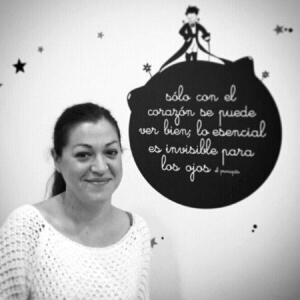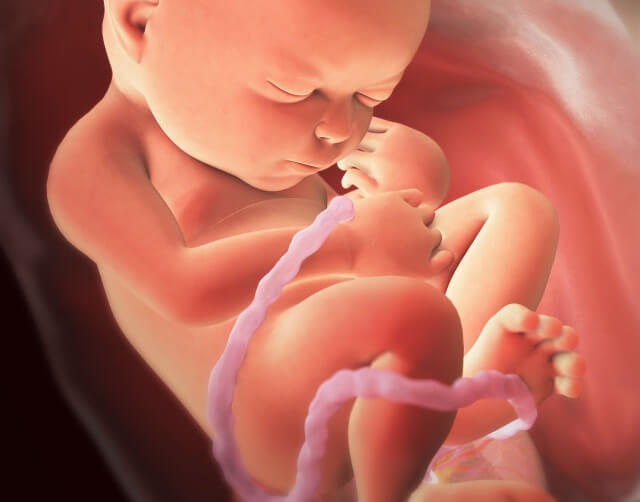How Many Weeks Does Pregnancy Last?


Written and verified by the psychopedagogue Leticia María Fernández Gutiérrez
How many months or weeks does pregnancy last? Every pregnant woman who goes to prenatal checkups counts the days to know how her baby is developing.
Here, we explain the duration of pregnancy in weeks.
It’s normal to have a lot of doubts about a first pregnancy. One of the most common is exactly how long it will last.
If you are a first-time mom, you might be thinking that pregnancy lasts 9 months. But that’s not exactly true.
A normal pregnancy lasts around 40 weeks. But, if each month has 4 weeks, then doesn’t that mean we’re pregnant for 10 months? 10 months!? Yes, it’s true. But how?
Does pregnancy last 9 months?
There’s no mistake: a normal pregnancy lasts for 40 weeks. But when we measure how far along a pregnancy is, we don’t count the time from the moment of conception itself. This is because we don’t know exactly when this occurred.
So, when your doctor gives you a figure in weeks, this starts on the first day of your last period. This means that fertilization itself happened in the two weeks before or after this date.

However, it is important to know that once you get your first scan, you will know exactly how far along you are. This is one of the measurements that doctors get from this first image of your baby.
Once this is clear, the math works out perfectly. Pregnancy will last between 38 and 42 weeks. Within this range, your baby may be born fully formed. At this point, your pregnancy is considered to be full term.
Can a baby be born before full term?
Of course. With every week that goes by, the probability of your baby fully developing and being born healthy rises.
Babies born at eight or even seven months have survived without major developmental difficulties. In multiple pregnancies, premature births are common.
This is because the babies have less space in the womb. Even if they are born preterm, there will not necessarily be complications.
A fetus may be viable from 26 weeks, although at this point the baby has still not fully developed. This marks the earliest time at which the baby may be born and survive. However, this is far from ideal for the baby.
The earlier a premature baby is born, the more serious the complications are likely to be.
How do you divide the duration of pregnancy?
The duration of pregnancy is divided into three stages or trimesters, depending on the development of the fetus. These trimesters, in turn, can be split into weeks:

- First trimester: Weeks 1-12. Around week 5, the baby’s heart begins to beat.
- Second trimester: Weeks 13-28. During week 15, the genitals have fully formed, so we can tell whether the baby is a boy or a girl. Between week 17 and 18, the baby will start to be able to hear, although they will not distinguish sound perfectly.
- Third trimester: Weeks 29-40. In this final stage, the baby increases rapidly in size. By 29, your baby will begin to blink. They will be able to see light and shadow, and their pupils will dilate.
Each trimester involves different milestones in the development of the fetus. With the huge amount of information available about pregnancy, you can track your baby’s progress and the development of each organ.
With each week of pregnancy, you can find out what is happening in your body. This will help you pass the time as you wait for your baby to arrive.
As you approach week 38, the baby will begin to get into position for birth: the cephalic presentation. Most babies get into this position on their own, with the head between the bones of the pelvis. Now, the baby is ready to be born at any moment.
Whatever stage you are at, talk to your doctor to get all the information you want about embryonic and fetal development during pregnancy.
How many months or weeks does pregnancy last? Every pregnant woman who goes to prenatal checkups counts the days to know how her baby is developing.
Here, we explain the duration of pregnancy in weeks.
It’s normal to have a lot of doubts about a first pregnancy. One of the most common is exactly how long it will last.
If you are a first-time mom, you might be thinking that pregnancy lasts 9 months. But that’s not exactly true.
A normal pregnancy lasts around 40 weeks. But, if each month has 4 weeks, then doesn’t that mean we’re pregnant for 10 months? 10 months!? Yes, it’s true. But how?
Does pregnancy last 9 months?
There’s no mistake: a normal pregnancy lasts for 40 weeks. But when we measure how far along a pregnancy is, we don’t count the time from the moment of conception itself. This is because we don’t know exactly when this occurred.
So, when your doctor gives you a figure in weeks, this starts on the first day of your last period. This means that fertilization itself happened in the two weeks before or after this date.

However, it is important to know that once you get your first scan, you will know exactly how far along you are. This is one of the measurements that doctors get from this first image of your baby.
Once this is clear, the math works out perfectly. Pregnancy will last between 38 and 42 weeks. Within this range, your baby may be born fully formed. At this point, your pregnancy is considered to be full term.
Can a baby be born before full term?
Of course. With every week that goes by, the probability of your baby fully developing and being born healthy rises.
Babies born at eight or even seven months have survived without major developmental difficulties. In multiple pregnancies, premature births are common.
This is because the babies have less space in the womb. Even if they are born preterm, there will not necessarily be complications.
A fetus may be viable from 26 weeks, although at this point the baby has still not fully developed. This marks the earliest time at which the baby may be born and survive. However, this is far from ideal for the baby.
The earlier a premature baby is born, the more serious the complications are likely to be.
How do you divide the duration of pregnancy?
The duration of pregnancy is divided into three stages or trimesters, depending on the development of the fetus. These trimesters, in turn, can be split into weeks:

- First trimester: Weeks 1-12. Around week 5, the baby’s heart begins to beat.
- Second trimester: Weeks 13-28. During week 15, the genitals have fully formed, so we can tell whether the baby is a boy or a girl. Between week 17 and 18, the baby will start to be able to hear, although they will not distinguish sound perfectly.
- Third trimester: Weeks 29-40. In this final stage, the baby increases rapidly in size. By 29, your baby will begin to blink. They will be able to see light and shadow, and their pupils will dilate.
Each trimester involves different milestones in the development of the fetus. With the huge amount of information available about pregnancy, you can track your baby’s progress and the development of each organ.
With each week of pregnancy, you can find out what is happening in your body. This will help you pass the time as you wait for your baby to arrive.
As you approach week 38, the baby will begin to get into position for birth: the cephalic presentation. Most babies get into this position on their own, with the head between the bones of the pelvis. Now, the baby is ready to be born at any moment.
Whatever stage you are at, talk to your doctor to get all the information you want about embryonic and fetal development during pregnancy.
This text is provided for informational purposes only and does not replace consultation with a professional. If in doubt, consult your specialist.








